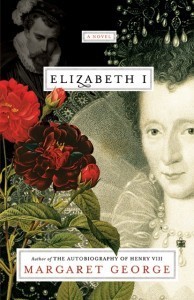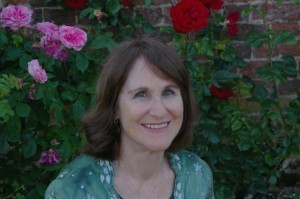date newest »
newest »
 newest »
newest »
message 1:
by
Owen
(new)
Apr 08, 2011 05:32AM
 Thank you both for the introduction to the new masterpiece, which I am confident it will be after reading Mary called Magdalen and Helen of Troy, both of which I found intriguing and enjoyable, not least because of the excellent insight into what life entailed in those times. Margaret, if Sharon gives an accolade like this I shall definitely be partaking of your offering. Many thanks to you both also for many hours of pleasurable reading.
Thank you both for the introduction to the new masterpiece, which I am confident it will be after reading Mary called Magdalen and Helen of Troy, both of which I found intriguing and enjoyable, not least because of the excellent insight into what life entailed in those times. Margaret, if Sharon gives an accolade like this I shall definitely be partaking of your offering. Many thanks to you both also for many hours of pleasurable reading.
reply
|
flag
 Just got my shipment yesterday from Amazon with Ms. George's latest and I can say for certain that I will enjoy every line. Good thing I don't have to choose which of her books is my favorite...ooh! And, Sharon, Sunne will ALWAYS be my Number One of all time!
Just got my shipment yesterday from Amazon with Ms. George's latest and I can say for certain that I will enjoy every line. Good thing I don't have to choose which of her books is my favorite...ooh! And, Sharon, Sunne will ALWAYS be my Number One of all time!
 I would double up on the question to Elizabeth Tudor. Although I believe I know the answer (gained from no notable source other than being a woman)I would still enjoy studying the poise and reaction of the woman as she replies with a lie.
I would double up on the question to Elizabeth Tudor. Although I believe I know the answer (gained from no notable source other than being a woman)I would still enjoy studying the poise and reaction of the woman as she replies with a lie.
 Here's my theory on why Elizabeth was a virgin (not that it really matters). In those days, women did not know how to prevent pregnancy. Elizabeth was a careful woman, a calculating woman and too smart to risk an illegitmate pregnancy. In the final analysis, she proved by her life that reigning and power were her passions and priority. She demonstrated that she had complete command. Unlike today, virginity was valued and considered a virtue. Nothing to be ashamed of.
Here's my theory on why Elizabeth was a virgin (not that it really matters). In those days, women did not know how to prevent pregnancy. Elizabeth was a careful woman, a calculating woman and too smart to risk an illegitmate pregnancy. In the final analysis, she proved by her life that reigning and power were her passions and priority. She demonstrated that she had complete command. Unlike today, virginity was valued and considered a virtue. Nothing to be ashamed of.
 I watched a doco on the theory that Elizabeth actually did have a baby. It was entertaining, if nothing else. But I loved the back and forth arguments between the so called experts on 'Elizabeth.'
I watched a doco on the theory that Elizabeth actually did have a baby. It was entertaining, if nothing else. But I loved the back and forth arguments between the so called experts on 'Elizabeth.' I love the idea that bias is the deciding factor in how people are portrayed. It certainly eliminates the need for truth.
Currently reading a fiction - The Final Act Of Mr Shakespeare. It has William squirming in his theatre seat, as he watches a 're-run' of Richard III. He questions whether he was right to portray Richard as such a hideous monster, and ponders on what damage he has sown through such a defamatory piece.
Hilarious.
 I don't think Richard would have found Shakepeare's portrayal of him "hilarious", particularly as for centuries people who never looked beyond the play believed him to be the "hideous monster".
I don't think Richard would have found Shakepeare's portrayal of him "hilarious", particularly as for centuries people who never looked beyond the play believed him to be the "hideous monster".If Elizabeth had given birth to a child it would have taken precedence over the Stuarts and the whole of history from 1603 onwards would have changed, probably for the better. The Stuarts were worse if anything than the Tudors, carrying the belief in "the divine right of kings" to such ridiculous extremes.
 The 'hilarious' tag refers to the scenes of Will Shakespeare dealing with his guilt over his selected portrayal of Richard. Hence the mention of 'such a defamatory piece.'
The 'hilarious' tag refers to the scenes of Will Shakespeare dealing with his guilt over his selected portrayal of Richard. Hence the mention of 'such a defamatory piece.'
 Don't worry. I've just completed a novel in which my characters meet Richard in the Battle of Barnet. I have portrayed him as a good man, not a sinister deformed individual. Richard III will be pleased, or I gather he will.
Don't worry. I've just completed a novel in which my characters meet Richard in the Battle of Barnet. I have portrayed him as a good man, not a sinister deformed individual. Richard III will be pleased, or I gather he will.





